
Dr Chris Manias
Reader in the History of Science
Research interests
- History
Pronouns
he/him
Biography
I am a specialist in the history and the cultural role of the deep-time, human and environmental sciences, with particular focuses on Britain, France, German-speaking Europe and the USA from the late eighteenth to early-twentieth century.
I studied for my undergraduate degree in History at King’s, and then took my MA in Social and Cultural History at Birkbeck, University of London. I stayed on at Birkbeck for my PhD, which was awarded in 2008. After this, I held a variety of teaching and research positions at the German Historical Institute London and the universities of Bristol and Exeter, and was a Lecturer in Modern European History at the University of Manchester (2012-2015). I joined the history department at King's in September 2015.
At King’s, I am a core member of the Centre for the History of Science, Technology & Medicine, and co-lead of the Environmental Humanities Network. As well as this, I run the Popularizing Palaeontology: Current & Historical Perspectives network, an interdisciplinary and international grouping aiming to understand the cultural position of palaeontology within public debate.
Research interests and PhD supervision
My work has followed two primary strands. The first is in the history of nineteenth-century archaeology, anthropology and philology, and their connections with changing concepts of nation, race and civilization. The second is in the history of the deep-time sciences, and especially palaeontology, thinking about the formation of these fields, and how they became some of the most resonant sciences in the modern era. I am especially interested in how scholarly, scientific and intellectual approaches develop across national boundaries and between different disciplinary fields, and in understandings of development and change, whether this be historical, evolutionary or cultural.
This leads me into a number of different interests, including:
- The history and cultural role of the deep-time, human and environmental sciences (especially palaeontology, archaeology and anthropology)
- Environmental history
- The history of ideas of race, culture and nationality
- Understandings of evolution and development
- The history and role of museums and heritage organizations
I would be pleased to hear from prospective postgraduate students interested in the modern history of science, or more generally in the cultural and intellectual history of Britain, France, German-speaking Europe and the USA in the nineteenth and early-twentieth centuries. I would be particularly interested in projects engaging with the following areas:
- The human, deep-time and biological sciences
- Comparative and transnational approaches to history Internationalism and nationalism, particularly in scholarship and science
- Environmental History
- The history of understandings of race and culture, and of progress, evolution and degeneration
- The history of museums and collections
Teaching
I teach a variety of courses, ranging from broad surveys of nineteenth-century history, to more specialized courses in: the history of race and nationalism; environmental history; the history of science, technology and medicine; and histories of museums and cultural institutions. I am particularly keen to introduce students to different academic fields in an interdisciplinary way, and think about the relevance of historical processes to current cultural and political debates.
Expertise and public engagement
I regularly speak at and organise public events (especially around the public role of palaeontology), and am involved in a number of collaborations with artists and cultural organizations.
I am happy to be contacted on queries to do with: the history of nineteenth and early-twentieth century science; the history of museums and other public scientific institutions; the history of ideas of race and European engagement with the wider world in the modern period; and the history and wider cultural implications of palaeontology, human evolution, archaeology and prehistory.
Selected publications
- The Age of Mammals: Nature, Development and Paleontology in the Long Nineteenth Century (University of Pittsburgh Press, 2023).
- ‘Reconstructing an Incomparable Organism: The Chalicothere in nineteenth and early-twentieth century palaeontology,’ History and Philosophy of the Life Sciences 40, 1 (2018), 1-21.
- ‘Contemporaries of the Cave Bear and the Woolly Rhinoceros: Historicizing Prehistoric Humans and Extinct Beasts, 1850-1914,’ in Efram Sera-Shriar (ed.), Historicising Humans in nineteenth-century British Sciences (Pittsburgh University Press, 2018), 14-43.
- ‘Progress in Life’s History: Linking Darwinism and Palaeontology in Britain, 1860-1914,’ Studies in History and Philosophy of Science Part C: Studies in History and Philosophy of Biological and Biomedical Sciences 66 (2017), Special Issue on ‘Darwinism and Paleontology,’ 18-26.
- Race, Science and the Nation: Reconstructing the Ancient Past in Britain, France and Germany, 1800-1914 (Routledge, 2013).
BlueSky: @chrismanias.bsky.social
Mastodon: @ChrisManias@sauropods.win
Research

Climate & sustainability researchers at King’s
King's researchers working across climate and sustainability

Environmental Humanities Network
Addressing the world's most pressing environmental challenges.
Empires and Decolonizations Research Hub
Aiming to bring together those at King’s interested in the history of empires, across all periods - ancient and modern.
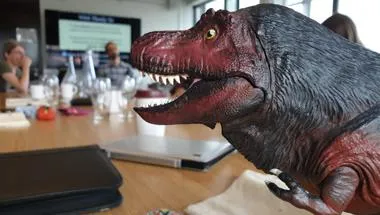
Popularizing Palaeontology: Current and Historical Perspectives
From the beginnings of research into earth’s deep history in the late-18th century, extinct animals, lost worlds, and accounts of palaeontological discovery.
Project status: Ongoing
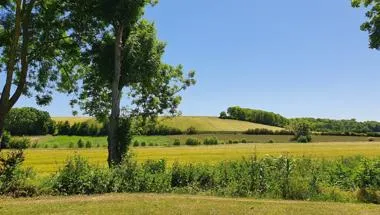
Valuing Nature: Histories of everyday engagement with the environment in France, Britain, and their Empires, 1600-present
How has the natural world been valued, and how have different types of engagement with nature and environment been valued?
Project status: Ongoing

Centre for the History of Science, Technology and Medicine
Engaging directly with policy-makers to change understandings of history and of the world in which we live today.
News
How pop-culture's love for dinosaurs has deepened our understanding of them
From Jurassic Park to Toy Story’s Rex, dinosaurs have always captured our imagination. Dr Chris Manias’ new book delves into the two-way relation between pop...
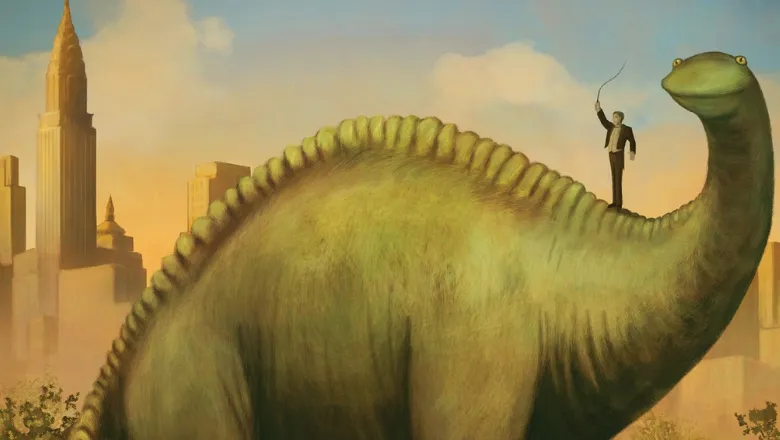
Six new collaborations launched as part of King's Artists programme
Artists-in-residence will collaborate with academics to explore imaginative approaches to research.
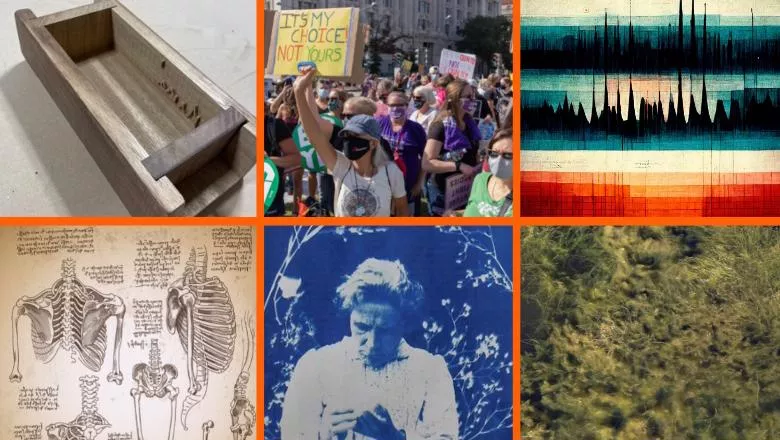
Events

Community, Knowledge and the Trans Day of Visibility
Queer@King's is delighted to bring into conversation leading writers, activists and academic researchers invested in advancing trans rights and trans knowledge.
Please note: this event has passed.

Palaeontology in Public Launch
Palaeontology in Public: Popular Science, Lost Creatures and Deep Time, available as an open-access pdf.
Please note: this event has passed.

Palaeontology in Public Online Launch
Palaeontology in Public: Popular Science, Lost Creatures and Deep Time (UCL Press, 2025), edited by Chris Manias.
Please note: this event has passed.
Spotlight
Crystal Palace Park: Beyond the Dinosaurs
The regeneration of one of the most storied parks in London has been mooted for decades. In this Spotlight on Arts & Humanities we focus on a King’s project,...
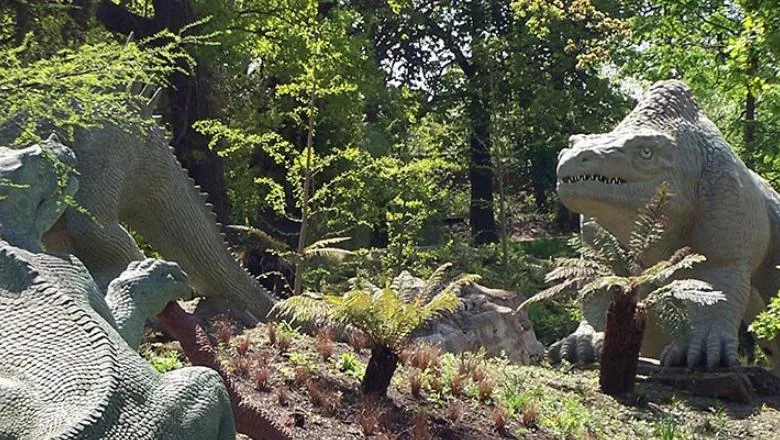
Research

Climate & sustainability researchers at King’s
King's researchers working across climate and sustainability

Environmental Humanities Network
Addressing the world's most pressing environmental challenges.
Empires and Decolonizations Research Hub
Aiming to bring together those at King’s interested in the history of empires, across all periods - ancient and modern.

Popularizing Palaeontology: Current and Historical Perspectives
From the beginnings of research into earth’s deep history in the late-18th century, extinct animals, lost worlds, and accounts of palaeontological discovery.
Project status: Ongoing

Valuing Nature: Histories of everyday engagement with the environment in France, Britain, and their Empires, 1600-present
How has the natural world been valued, and how have different types of engagement with nature and environment been valued?
Project status: Ongoing

Centre for the History of Science, Technology and Medicine
Engaging directly with policy-makers to change understandings of history and of the world in which we live today.
News
How pop-culture's love for dinosaurs has deepened our understanding of them
From Jurassic Park to Toy Story’s Rex, dinosaurs have always captured our imagination. Dr Chris Manias’ new book delves into the two-way relation between pop...

Six new collaborations launched as part of King's Artists programme
Artists-in-residence will collaborate with academics to explore imaginative approaches to research.

Events

Community, Knowledge and the Trans Day of Visibility
Queer@King's is delighted to bring into conversation leading writers, activists and academic researchers invested in advancing trans rights and trans knowledge.
Please note: this event has passed.

Palaeontology in Public Launch
Palaeontology in Public: Popular Science, Lost Creatures and Deep Time, available as an open-access pdf.
Please note: this event has passed.

Palaeontology in Public Online Launch
Palaeontology in Public: Popular Science, Lost Creatures and Deep Time (UCL Press, 2025), edited by Chris Manias.
Please note: this event has passed.
Spotlight
Crystal Palace Park: Beyond the Dinosaurs
The regeneration of one of the most storied parks in London has been mooted for decades. In this Spotlight on Arts & Humanities we focus on a King’s project,...

